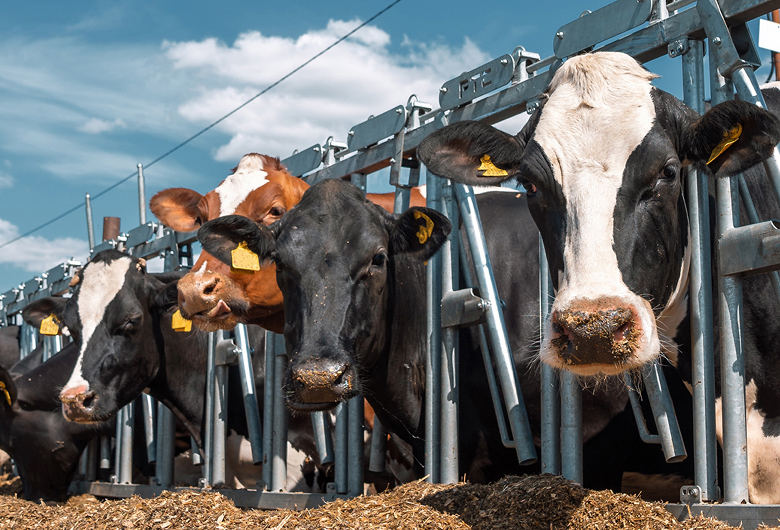

Tackle mycotoxins in dairy cows with a prevent and protect approach
by Dr. Joel Pankowski, Senior Technical Service ManagerThe threat of mycotoxins might have you using, or considering using, a mycotoxin binder. Seems like a simple solution, right?
But think about it for a moment: Common knowledge tells us no product binds 100% of mycotoxins in dairy cattle. Not only that, but herds are often facing not just one, but multiple mycotoxin contaminants at a time, some more easily bound than others.
That means focusing solely on binding leaves your cows susceptible.
Inevitably, some mycotoxins will get past the binding phase where cows need a second layer of protection. They need gut protection, specifically stronger gut integrity, to prevent unbound mycotoxins from causing damage that could result in pathogens getting further downstream into vital organs.
Resilience starts in the gut.
A majority of any mammal’s immune function resides in the gut. The stronger your cow’s gut is, the more resilient she’ll be when faced with some type of viral or bacterial challenge. The more resilient, in theory, the faster to recovery.
So how do we build stronger cow gut integrity?
By going beyond mycotoxin prevention with BG-MAX™.
BG-MAX contains Refined Functional Carbohydrates™ (RFCs™) to prevent, or bind mycotoxins in dairy cows, and protect by strengthening gut integrity.
A #ScienceHearted approach.
Getting these RFCs into a usable form is a complicated but worthy task:
Yeast cell walls contain powerful compounds that offer an array of health benefits, but these compounds aren’t easily removed.
ARM & HAMMER uses a specialized process called enzymatic hydrolysis to remove RFCs from the yeast cell wall.
This specialized process uses precise enzymes to release D. mannose, Mannan-oligosaccharides (MOS), and beta-glucans from the cell wall in a highly bioavailable form.
The more bioavailable these compounds are, the better they work to improve intestinal health, bind pathogens and mycotoxins and modulate the immune system into a state of readiness.
BG-MAX also contains highly refined bentonite, a clay compound, for broad-spectrum coverage. Most bentonite used for mycotoxin binding today is feed-grade. It’s cheap but must be used at a high-volume, high-inclusion rate. The highly refined bentonite in BG-MAX has more surface area, meaning it can be fed at a lower-inclusion rate.
Bentonite is a nonspecific binder, meaning it will bind up more than just mycotoxins in dairy cows – including nutrients a cow needs. The highly refined bentonite in BG-MAX acts more magnetically than feed-grade bentonites, attracting key mycotoxin strains more specifically.
The combination of BG-MAX’s highly available RFCs and highly refined bentonite not only help prevent mycotoxins in dairy cattle, but they also protect the gut from further damage that inbound mycotoxins could cause.
Gut health has never been more important.
We’re seeing new pathogens emerge and spread rapidly. If resilience is built in the gut, it stands to reason that gut health has never been more important.
Proactively prevent and protect against mycotoxins and strengthen gut integrity with BG-MAX. Work with your local ARM & HAMMER representative to build a more resilient herd.


